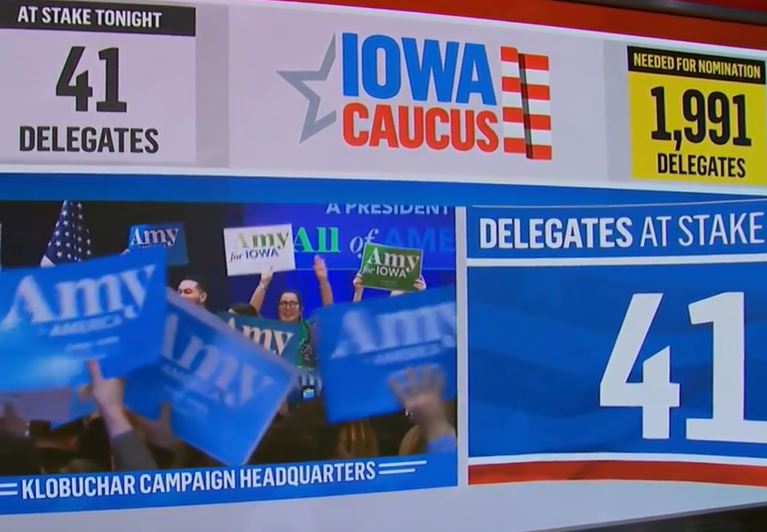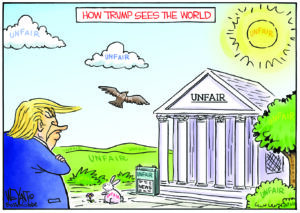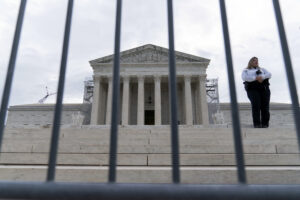The Iowa Fiasco Rings the Death Knell of a Failed 50-Year Experiment
It's time to ask why two almost entirely white states are allowed to have such a disproportionate influence over presidential nominations. YouTube screenshot
YouTube screenshot
The Iowa caucuses are monumentally important in the selection of presidential candidates in the United States. The question we have to ask is, Why? As this goes to press, only partial results have been released so far by the Iowa Democratic Party. Most blame falls on the Iowa Democratic Party and a software company called Shadow. Shadow made the disastrous app that failed to provide the promised instantaneous caucus results. Then, the party’s backup system, a tried-and-true phone bank that has served the caucus process for half a century, proved to be insufficient for the volume of precincts desperately trying to call in their results.
Technical snafus notwithstanding, the fundamental question is why two almost entirely white states — Iowa, along with New Hampshire with its first-in-the-nation primary status — are allowed to have such a disproportionate influence over who the two major parties nominate for president.
The Democracy Now! news hour sparked the most recent incarnation of this debate during a presidential forum on environmental justice we co-hosted, held last November at South Carolina State University, an HBCU (historically black college or university) in Orangeburg, S.C. Here is the exchange that was the first time a major 2020 Democratic candidate was asked to comment on the nomination processes’ racial disparity:
AMY GOODMAN: Senator Warren … speaking about racial injustice, do you think the order of the primary states should change? You have Iowa and New Hampshire —
SEN. ELIZABETH WARREN: Wait, let me make — let me just — before you finish, are you actually going to ask me to sit here and criticize Iowa and New Hampshire?
GOODMAN: No, I’m asking about the order.
WARREN: No, that is what Iowa and New Hampshire are all about.
GOODMAN: But let me just ask. They’re two of the whitest states in the country, and then we move to South Carolina with a very significant population of people of color, and it means the candidates spend so much of their time catering to those first two states. Overall, do you think that should change?
WARREN: Look, I’m just a player in the game on this one.
Warren was visibly irritated by the question as she left the stage. Later, MSNBC played our exchange with Warren for then-Democratic presidential hopeful Julian Castro. “Our country has changed a lot in those 50 years. … Demographically, it is not reflective of the United States as a whole, certainly not of the Democratic Party,” Castro replied. “I don’t believe that forever we should be married to Iowa and New Hampshire going first.”
Gilberto Hinojosa, chair of the Texas Democratic Party, appeared on Democracy Now! not long after Warren’s dismissal of the issue. “Texas is the second-largest state in the country, probably the most diverse state in the country. Forty percent of the population in the state is Hispanic. Fifteen percent is either African American or Asian American. We are a majority-minority state, as is California and New Mexico,” Hinojosa said. “I’m from the Rio Grande Valley of Texas. There’s about 1.4 million people that live in the Rio Grande Valley, about 90% Latino. It’s as if we would have our primary in the Rio Grande Valley of Texas and have candidates spending three months there, continuously going to barbecues and different events that were being sponsored by the local elected officials. Nobody would think that would be representative.”
What would be representative? According to the Pew Research Center, the Democratic Party is now more than 40% nonwhite. Compare that with Iowa, which is more than 90% white, and New Hampshire at 93% white, according to the U.S. Census as of 2018. One can anecdotally verify these numbers by viewing video of just about any campaign event in either state, as the camera pans across a sea of white faces.
Pew also notes that post-millennials, those born between 1997-2012, will be the most racially diverse generation in U.S. history. According to figures recently released by the U.S. Census, while Iowa’s population increased marginally, the state actually lost residents under 18. New Hampshire’s decline in young people was even more pronounced. Clearly, as these two states become older and whiter, they become decreasingly representative of the Democratic Party.
“Iowa’s function in the nomination process is to responsibly winnow the field,” Pulitzer Prize winning journalist Art Cullen, editor of the Storm Lake Times in Iowa, wrote this week, adding, “nobody has any clue who will win our two-year-long parlor game.”
Choosing the nominee to challenge the impeached yet acquitted incumbent president, Donald Trump, is no game. There is strength in diversity, and it is time for the Democratic Party to abandon its failed, 50-year experiment with the first-in-the-nation caucus and primary in Iowa and New Hampshire.
Your support matters…Independent journalism is under threat and overshadowed by heavily funded mainstream media.
You can help level the playing field. Become a member.
Your tax-deductible contribution keeps us digging beneath the headlines to give you thought-provoking, investigative reporting and analysis that unearths what's really happening- without compromise.
Give today to support our courageous, independent journalists.






You need to be a supporter to comment.
There are currently no responses to this article.
Be the first to respond.